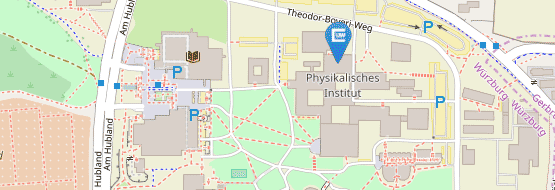Thermoelectrics
Upon primary energy consumption a significant amount of waste heat at moderate temperatures of around 100 °C is generated. Regarding recent efforts on sustainable, environmental-friendly energy sources it is thus of utmost importance to take advantage of these losses by means of thermoelectric generators (TEGs) which directly recover waste heat into electric power. In contrast to well-established inorganic TEGs, organic van-der-Waals bound semiconductors constitute a promising alternative for next-generation, low-cost and green-technology TEGs. We aim for this approach by combining suited organic acceptor and donor materials to optimize the leading thermoelectric parameters such as the electrical conductivity or the Seebeck coefficient. Carrying-out these studies on single crystals as well as on thin films made of molecular and polymeric semiconductors, we are able to deduce the microscopic relations between band filling, electrical conductivity and Seebeck coefficient. Making use of the low thermal conductivity generic to van-der-Waals bound organic systems in combination with the superior charge transport in long-range ordered single crystals we have succeeded in prototypical all-organic TEGs with promising specific power output. Understanding the underlying physical processes of doping, carrier and heat transport on a microscopic level achieved by tight collaboration with theory, opens possibilities to affect and optimize the individual thermoelectric measures by novel device concepts based on multi-compound organic hybrid materials or nanostructured surfaces.


